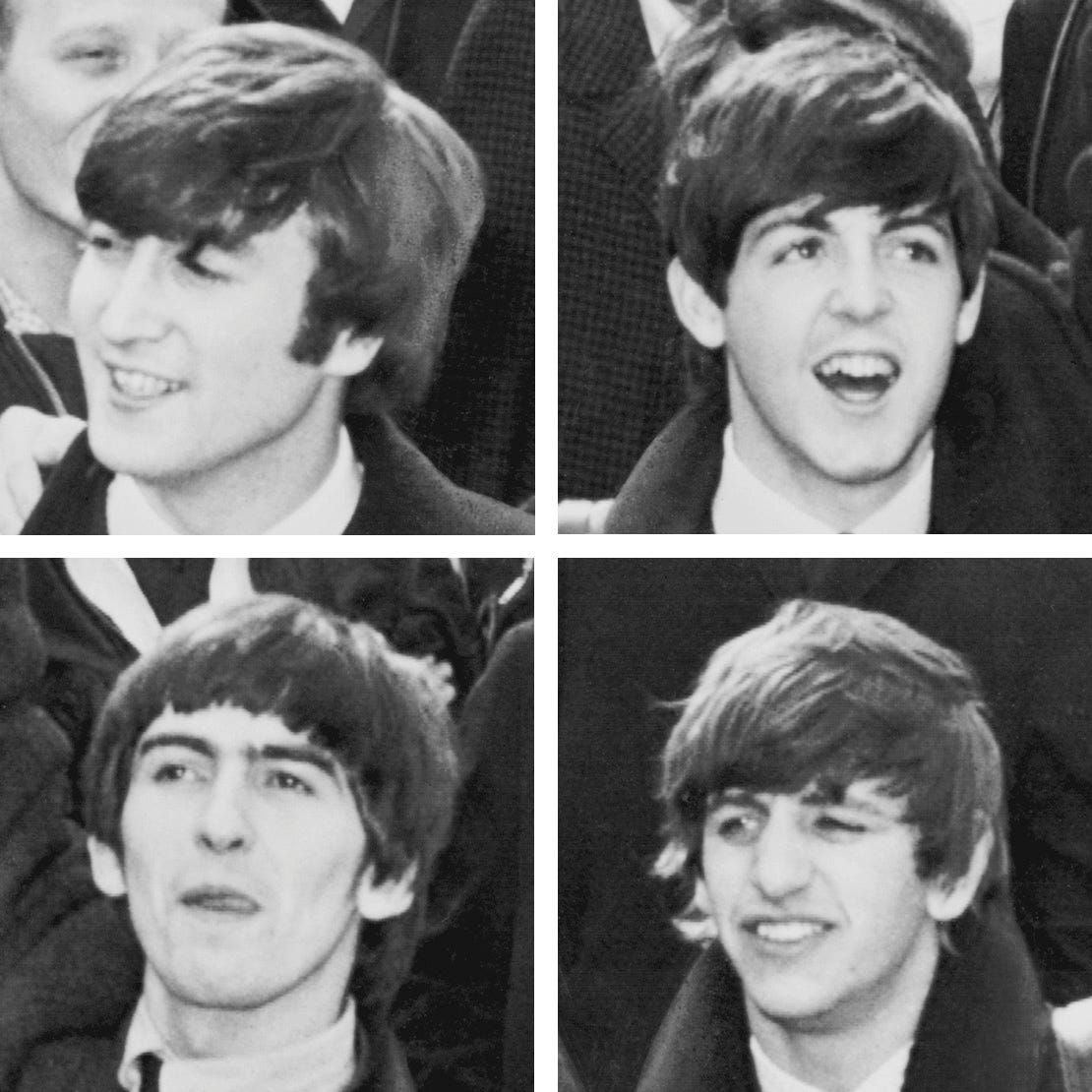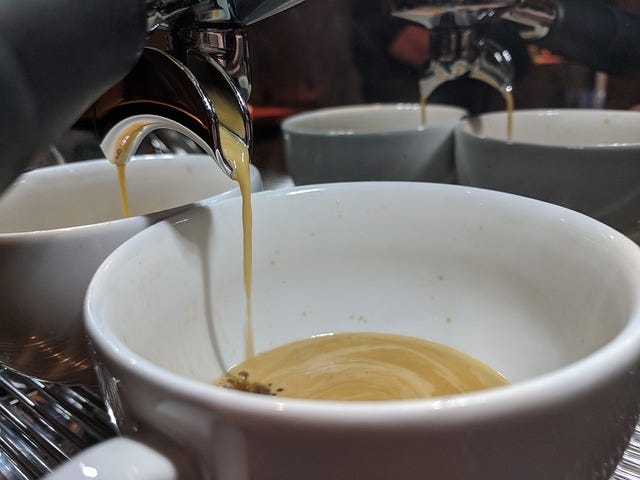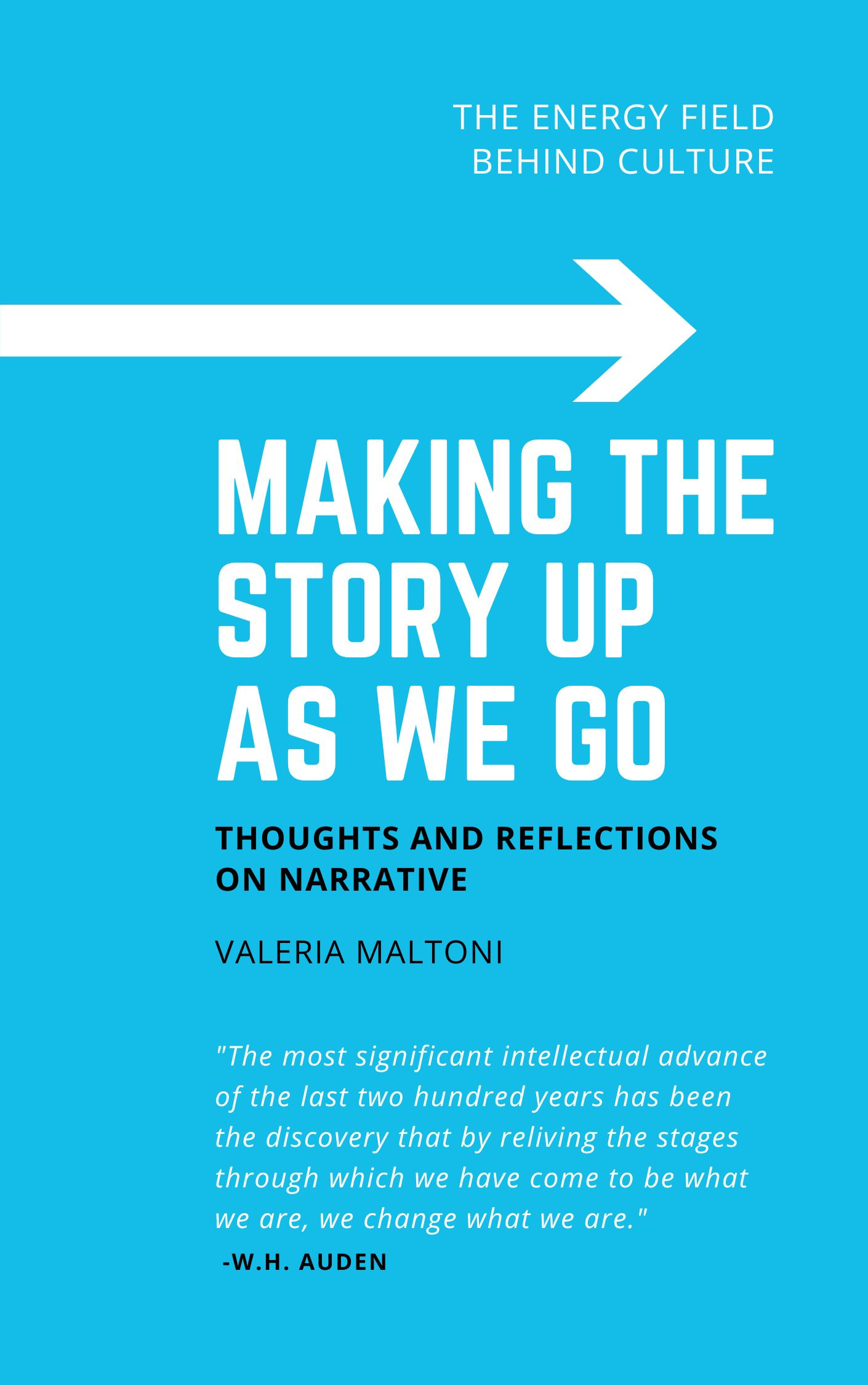I became a Beatles connoisseur and fan both early and late—early in my life, late in their success. It was the summer I drove with my parents and a couple of their friends to (the former) Yugoslavia. We drove from Modena all the way to the (now Croatian) isle of Krk.
We had just left Trieste behind (Trst on the other side of the border) and were driving along the winding road that flanked the coast when we came upon a horrific accident. People were literally bleeding all over. The image was seared into my young irises.
Inside the car everyone went very quiet as we watched the rescue services make their way to the vehicles. I don’t remember the rest of the drive, except that it was very long. Five plus hours are a long time to sit with four silent adults, after having witnessed suffering and pain.
On Value in Culture is a reader-supported guide to framing in narrative, language, books, value & culture. Both free and paid subscriptions are available. If you want to support my work, the best way is by paid subscription.
Once we got to Krk (apparently, Italians took all the vowels), found our resort, and unpacked, things started looking up. I wasn’t used to walking on rocks to get to water that was immediately deep and surprisingly cold with plenty of crustaceans on the seafloor. An incentive to swim on the surface, I thought.
There weren’t many children around, but I did manage to make some friends. I have no idea were they were from, only that we didn’t speak the same language. No matter, we understood each other enough to play together. That’s what children do.
The Beatles were the big novelty of the trip. While my father had gotten me used to listening to symphonic music via a special stereo radio (filodiffusore) he turned on every Sunday, my parents’ friends seemed to have mostly albums by the British quartet.
From Please, Please Me, A Hard Day’s Night, Help!, and Sgt. Pepper's Lonely Hearts Club Band, to The White Album, Yellow Submarine, Abbey Road, and Let it Be, the Beatles became the soundtrack of our summer vacation. That’s literally all I remember.
Well, except for when my mother almost drowned. I was in the water with her, but she wouldn’t let me near her. She was paddling attached to a floating mattress when panic struck—and began to sink. Our friends thought she was joking. After all, she was attached to the mattress.
But my father picked up on the panic. He grew up near a river; saved his younger brother from drowning once. Knowing what to do is critical when someone is panicking, or they’ll take you down with them. As the Beatles played on, I watched my father dive into the very cold water and take command of the situation. It felt like being in a movie: I treasured that moment and its soundtrack from there on.
That summer scene came to mind when I read about how “the cheeky wit and fresh take on rock ‘n’ roll offered by the Beatles” opened the ears (and hearts) of emotionally spent Americans in 1963.

I wasn’t there for the death in early June of Pope John XXIII (and possibly his policy of aggiornamento, updating); the signing of the Nuclear Test Ban Treaty; the March on Washington; nor the assassination of President Kennedy. But I’m here now, and I can tell you, America is emotionally spent.
Elon Musk is single-handedly crushing a big chunk of Internet research for no good reason, the Oppenheimer Principle afflicts technology barons, giant AI experiments hang over humanity like Damocles sword, there’s new Dumb and Desperate 24/7 Media Coverage literally nobody needs—and that’s the cognitive dissonance from just in the last tend days or so.
In 1968, writing about dwindling audiences, classical music composer Ned Rorem said instead of being at classical concerts and avant-garde recitals artists were home reacting to the Beatles. He described the band’s arrival as, “I believe [ ] one of the most healthy events in music since 1950.”
Rorem was curious about the energy of their music: where did it come from? How could such a band erupt from Liverpool? Innovation often comes from the margins of society. And music is not an exception. Jazz critic and music historian Ted Gioia identified port and border cities—the places that brought outsiders into the community. Liverpool was the most vibrant port city in Great Britain.
Hence from Liverpool came the British invasion to rock music. Music critic and (jazz) producer Nat Hentoff suggested the Beatles “turned millions of America adolescents on to what had been here hurting all the time… but the young here never did want it raw so they absorbed it through the British filter.”
But what if the attraction was not to get over the pain? What if it was instead about running towards pleasure?
What if through their music and lyrics the Beatles related to aspects of ourselves, rather than eliciting comparisons with other artists?
Could that be the magic? All the analysis in the world is not going to cover why we still love them today—the music, and the songs. “This album puts the Beatles back together again,”said Paul McCartney of Love, “because suddenly there's John and George with me and Ringo. It's kind of magical.”
Rorem concludes that the Beatles put fiction back into music, reviving the sensual. From the perspective of that child (me) who was discovering the joys of listening while witnessing life unfolding, there’s a crisis of stagnation in contemporary culture. Too much sameness in the mainstream, not enough discovery of what’s happening in the margins. Too much focus on commercial profit, not enough on creative risk.
Without meaning, enjoyment amuses up to a point. Formulas hit saturation thresholds. The harder we push them, the more intense the shift, when it comes. Change will come again. Perhaps it will be in the lighting of many fires, rather than the few, big hits. Our lives would be enriched in such scenario.
Strenght is in diversity and variety of perspectives. My new friends shared different ideas about play and fun—I got to try on a temporary new identity. My father showed me how quickly we need to correct when someone’s sinking. Their friends opened a window into a new imaginary world for me.
The foursome from Liverpool showed us it can be done. Before they became ‘the culture,’ they had just the right mix of novelty to be counter cultural. Perhaps we’re once again at an inflection point in human history. Perhaps what this moment asks of us is that we think as artists and do the work that creates the culture we want—not the lessness we get handed down as big corporations squeeze the moreness (German Mehrheit) of humanity into their funnels.
Art is choosing to do something skillfully,
caring about the details,
bringing all of yourself
to make the finest work you can.
It is beyond ego, vanity, self-glorification,
and need for approval.
Rick Rubin, The Creative Act: A Way of Being.
Sospeso:
A caffe’ sospeso (suspended coffee) is a cup of coffee paid for in advance as an offer to the person who comes next. The tradition began in the working-class cafés of Naples, where someone who had experienced good luck would order a suspension, paying the price of two coffees but receiving and consuming only one. A person of limited means inquiring whether there was a sospeso available would then be served a coffee for free. It’s culture’s way to celebrate kindness and restore faith in humanity.

Coming up:
I’m very excited about the next conversation on “value in history” I’ll be releasing on Traces & Dreams. It’s a deep dive on the main beats in Free market : the history of an idea. Which got quite a bit of push-back from mainstream critics. Histories' are hypotheses and theories about why change occurs. They themselves are products of culture. But it’s getting harder for even the smallest sign of counter cultural energy.
In Making the Story up as we Go I reflect on how narrative shapes culture, the value of storytelling, the distinction between story and narrative, and the role of technology.
Ways you can work with me.






